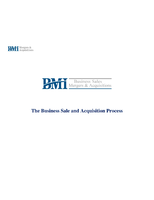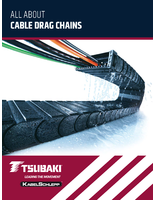Delcam's PowerMILL Helps Jetblades Turn Operators into Engineers
Share:

Like many other UK subcontracting companies, Coventry-based Jetblades Engineering has had to change its operating methods to cope with the new manufacturing environment. Managing Director, Mark Kirby, relies more than ever on the company's Delcam PowerMILL CAM software as he moves the firm from production machining to short-run manufacture. At the same time, he is increasing the skills of his staff, effectively turning his machine operators into much more broadly skilled engineers.
"We have to face the reality that most long production runs are going to be moved to countries with lower labour costs," explained Mr. Kirby. "However, there is still plenty of demand for short runs of prototypes and one-off components. The problem is that we used to be able to amortise the set-up costs over the production run. We need to persuade our customers that these costs will be proportionately higher now because they are concentrated on a few parts or even on a single item."
"We produce between one and two hundred different components each year," he claimed. "Many of these are complex parts, often needing well over one hundred toolpaths to manufacture them. A much wider set of skills is needed for this type of work."
One significant change has been a move into five-axis machining with a Mazak Variaxis 630 machining centre. "This is ideal for aerospace and other demanding applications, since most projects can be completed in one or two set-ups," said Mr. Kirby. "The reduction in set-ups saves time, of course, but the most important benefit is the increased accuracy. It is virtually impossible to keep to tolerances of less than 10 microns, which we often need, over a long series of different set-ups."
"Machining times have also been driven down by developments in cutting tool technology, which has moved on tremendously in the last five years," added Mr. Kirby. "We are now able to use speeds and feeds that would have been suicidal in the past. Our PowerMILL software has kept up with these developments and so allows us to get the most out of our machines."
Now the majority of the time in any given job goes into planning the most efficient sequence of operations and working out how to hold the part at each stage. "As well as training the machine operators to use the software so that they can develop their own programs, I have moved the CADCAM office next to the shop floor so they can still see and hear the machines working," explained Mr. Kirby.
The move to making smaller number of parts means that every piece is more critical. "Right first time used to be desirable, now it is essential," said Mr. Kirby. "You cannot lose the cost of a few defects over a long production run any more, so reliable software is more important than ever. The simulations we get from ViewMILL are an essential aid to planning for successful machining."
"There is other software that can bring in a part and put toolpaths over it," suggested Mr. Kirby. "The advantages of PowerMILL are the ways in which you can refine the programs to make the process more efficient and the quality you get in the finished components."
"We are also using the software to capture our manufacturing knowledge. For example, autosport projects often require a series of iterations on a single part. We can save time by recording a session file in PowerMILL for the first example. The same tooling and strategies can then be applied to each revised design."
"The regular seminars and user meetings held by Delcam are an important part of our training process," he added. "In addition, the support has always been excellent. We pay a significant amount in maintenance and we certainly make sure we get value for our money."
Despite the many challenges, Mr. Kirby is confident of success with his new approach. "Designers still don't understand manufacturing well enough and the situation is becoming worse as OEM companies subcontract more and more of their production," he claimed. "The local suppliers' main advantage is the ability to talk to the designer and discuss things face to face."
"For example, one common issue is the demand for tight tolerances that add cost without adding value. Designers regularly set a tolerance based on what they believe is possible, rather than on the real requirements of the specific part. A good, local subcontractor can often save his customer significant amounts of money simply by asking "Did you really mean that?" In contrast, an overseas supplier will usually make whatever is on the drawing, without considering any cost implications."
For further information on Delcam's PowerMILL, please contact: -
Peter Dickin, Public Relations Manager
Direct phone: 44 (0)121 683 1081
e-mail: marketing@delcam.com
Delcam plc,
Small Heath Business Park,
Birmingham, B10 0HJ,
UK
www.delcam.co.uk
Delcam Inc.
3270 Electricity Drive
Windsor, Ont. N8W 5J1
Canada
www.delcam.com




